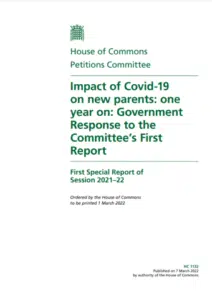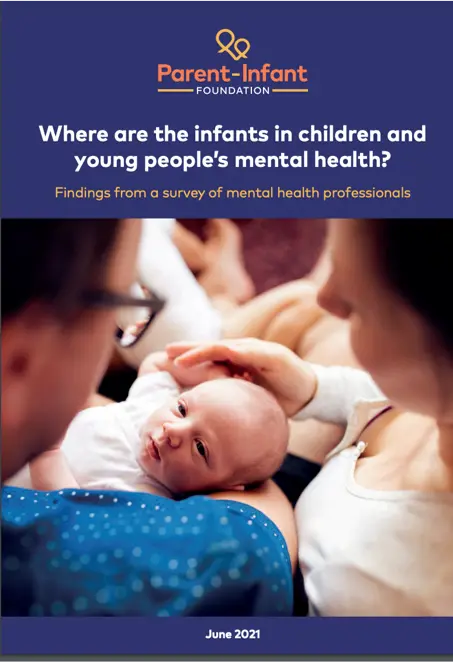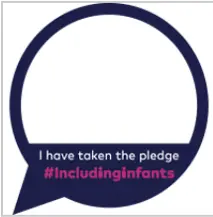Yesterday, the House of Commons Petitions Committee published the Government’s response to the Committee’s first report on the impact of the COVID-19 pandemic on new parents. The response is available here.
The Committee’s report focused on the additional pressures that COVID-19 and the pandemic response have brought for new and expectant parents, and called for: strengthened perinatal mental health services; increased in-person visits by health visitors to new parents; a review of monitoring and enforcement activity relating to employers’ health and safety obligations to new parents; legislation on extended redundancy protections for new and expectant mothers; and a review into the funding and affordability of childcare
The Government’s response states:
“We understand that the pandemic and the pandemic response have involved a significant amount of upheaval for new parents, including through changes or delays to services, and national lockdowns presenting barriers to support and care from friends and relatives. The first 1,001 days from conception to the age of two are critical: they set the foundations for an individual’s cognitive, emotional and physical development through the early years and growing up well. We continue to support giving every child the best start in life, including through building back better from the COVID-19 pandemic. In October 2021, an additional £500 million was announced through the Budget for Start for Life and family help services [this includes £200m for the Supporting Families Programme for children of all ages]. This represents an important step in implementing the vision set out in The Best Start for Life: a Vision for the 1,001 critical days, published by the Early Years Healthy Development Review led by Dame Andrea Leadsom.”
At the iHV, we support the Petitions Committee’s conclusion that, whilst this investment is an important first step and a welcome commitment to the ‘First 1,001 Days’, this does not go far enough. The Committee’s response states:
“We welcome the long-term vision of the Government’s Best Start for Life review, but to date COVID-19 recovery funding aimed at children aged under 2 appears to have been unjustifiably neglected compared to the funding made available for older children. As we emerge from the pandemic, the Government must ensure it invests proportionately in the infrastructure which supports these families.”
The iHV is working closely with the Parent-Infant Foundation and many other leading organisations who are calling on the Government for a fully funded COVID-19 recovery plan for babies, young children and families.
Alison Morton, iHV Executive Director commented:
“There is no denying that the impact of the pandemic on babies, young children and families has been wide ranging, and disproportionately affects those who were already disadvantaged. Whilst the Government’s recent commitment of £300m for the Start for Life Offer is a welcomed step in the right direction, it doesn’t go anywhere near far enough to address the scale of unmet need and intensity of support required.
“Left unaddressed, the burden of vulnerability and early adversity is cumulative and may last a lifetime for some children. But, in a world of seemingly intractable challenges, there is hope – meaningful prevention, early intervention and care promises better health and wellbeing across generations. Inequalities are not inevitable; they are within our gift to change if we have the will and the means to tackle them.
“We therefore join with others in calling for a clear COVID-19 recovery plan for babies, young children and families at the scale of intensity required, and with the investment needed, to put this right. This includes tackling the workforce ‘elephant in the room’. The current workforce shortages in health visiting have been ignored for far too long, and their impact is being felt across the health and social care system and by parents who face the brunt of short-sighted policy making. We need more health visitors, and we need to start rebuilding this vital infrastructure of support for families now.”
We are grateful to the support of more than 700 leading children’s organisations who have supported our call for investment in health visiting. The Parent-Infant Foundation has highlighted three areas where they feel that the Government’s response is insufficient:
- The Government is diminishing the impact of the pandemic on our babies
- Disparities in recovery funding are inconsistent with Government’s own acknowledgement of the importance of the first 1001 days
- More must be done to strengthen our health visiting services.






